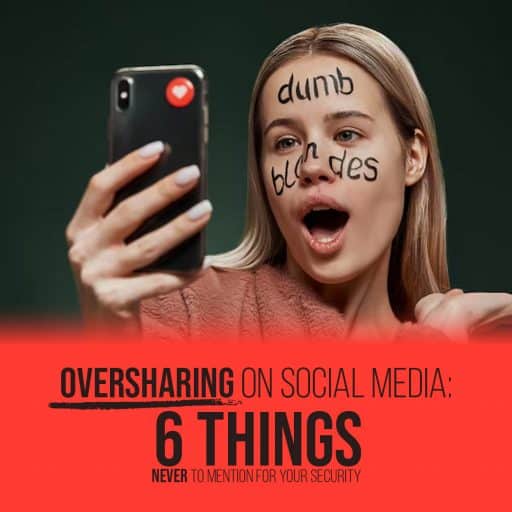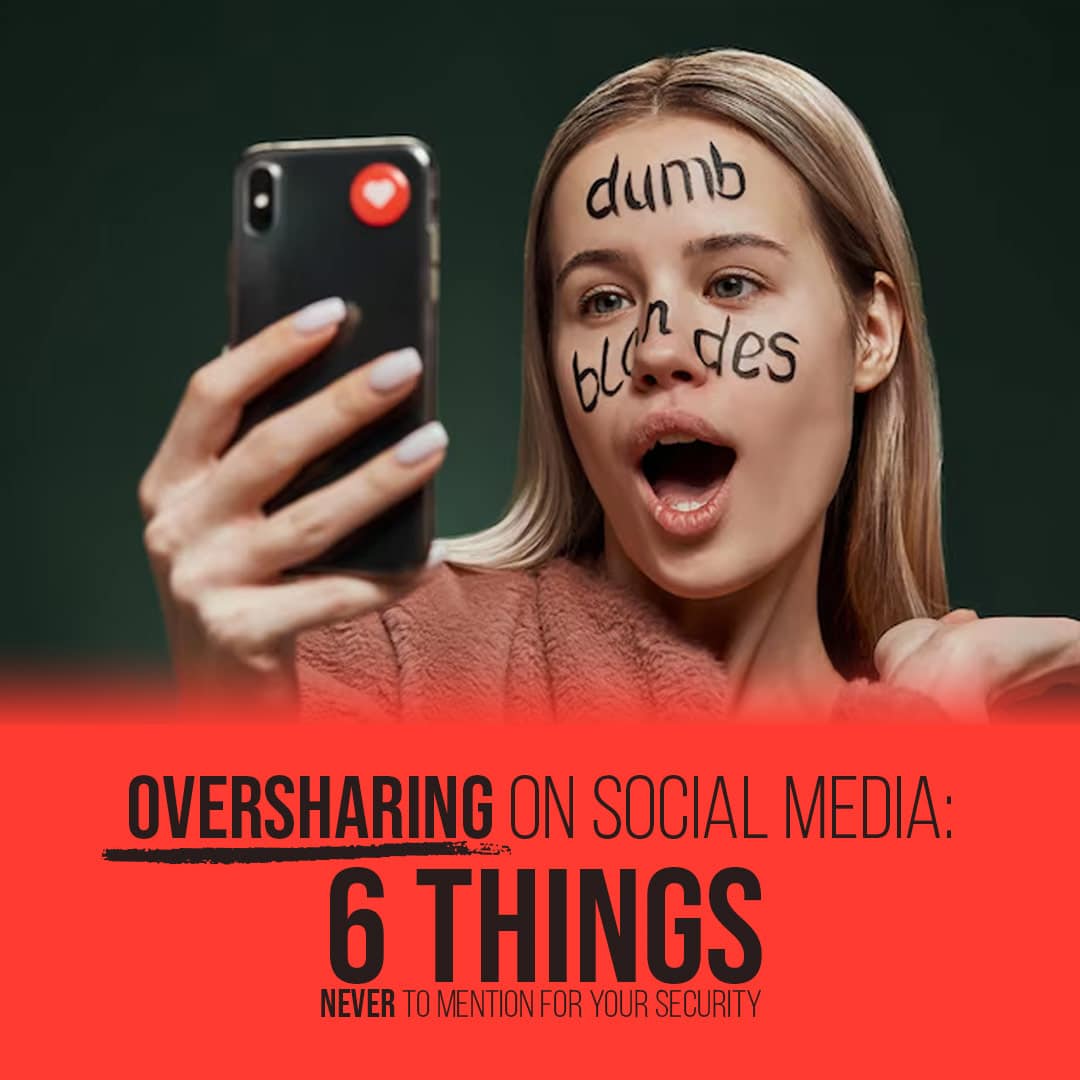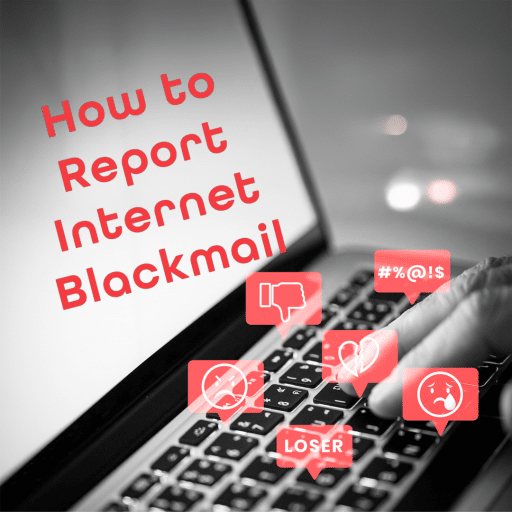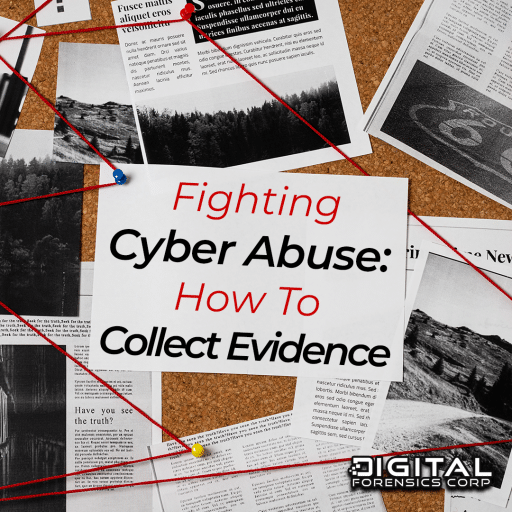Social media allows everyone to interact with people all over the world. Almost all of us use social media to connect with friends and family, engage with people who share a hobby, or consume content from creators who share entertaining posts.
As the name implies, social media encourages us to share much of our social lives. The ability to tag a person or location promotes the sharing of places we visit, celebrations with our family and friends, and many other aspects of our personal lives.
We know that there some things we just shouldn’t share online. We don’t want to tell people our passwords, yet some information we share may provide clues to that can be used to guess them. We may avoid engaging complete strangers in public about sensitive information, but give that same information up willingly on social media.
Many of our online habits go against what we do in person because these platforms feel removed from reality. However, oversharing on social media can be used against its users and provide useful insight to those who seek to exploit the information we post online.
How Do Social Media Scams Work?
The various social media platforms all offer different experiences. The media they present to the users shapes the community that uses them. Some social media platforms tend to attract certain demographics as well.
Platforms like X, formerly known as Twitter, allow for images and videos to be posted, but they’re most known for text posts. Instagram was originally an image-focused platform, but has expanded more toward video sharing in recent years.
Facebook was born from the web-focused days that incorporated easy sharing of posts, images, videos, and text with elements of blogging. There are social media platforms like Reddit that are more forum-based.
What all these platforms share is the ability to give followers and passersby a glimpse into the user’s life. These social media platforms give users a way to connect with people they do and don’t know. The unique dynamics of each platform change how the users share their experiences with each other.
While this can be useful for sharing life updates to our friends and family that we don’t see in person, it also can reveal information that can be used to scam us. Scammers work in a similar fashion to advertisers; the more they know about their target audience, the better they can tailor their message to reach them. By oversharing on social media, you are handing away the data that could be used to scam you.
6 Things to Never Mention on Social Media
Because social media platforms allow you to share almost anything you want, it is dangerously easy overshare. Oversharing occurs when a user posts information that is clearly more than the public should know or that unintentionally shares more than the user may have intended.
Here are six examples of oversharing on social media and why you should never mention them:
One: Personal Information
When making posts on a public forum, identifiable information can become a source for someone to track you down. Identifiable information can be clues left in pictures, videos, and text that can reveal a glimpse into your private life. You may not recognize you are sharing this data, but a scammer will.
When it comes to images and videos, this information can come from having street signs, addresses, and unique locations in the background of shots. It can also include tagging friends and family in the photos on your page. In a text post, this can be mentioning your place of work, the names of loved ones or pets, or significant dates in your life.
On their own, the appearance of just one of these things in a post may seem harmless. But all together, they can enable cybercriminals to begin constructing methods to identify you. These clues are all contextual, and someone looking to do harm can quickly build a profile on you using your social media.
Many hackers and scammers use social media to mine for information about a person that they can then use in phishing attacks. A phishing attack is when a scammer tries to get personal information from someone by pretending to be a family member, friend, coworker, or another close entity.
Two: Location Tagging
Many social media platforms allow, and even encourage, the tagging of locations on a post. This is when you can mark yourself as having visited a certain city, business, landmark, or other location. Many people like to show off the places they visit, especially if they are fancy or exclusive. However, this information is oversharing and can give a scammer critical intel that can be used against you.
Like with the identifiable information we covered above, this type of social media post can lead someone directly to your location or give them insight into your travel habits. Sporadic location tagging can feel meaningless, but with context and other posting patterns can be used to track or identify you. This can open the door to stalking and other vicious attacks.
Three: Travel Itinerary
When you plan a trip away from home, you’re often excited and ready to tell your followers about it. Maybe you’ve taken photos on your vacation and you feel like you can’t wait to share them and show all your friends what a great time you had. However, posting your travel itinerary can have harmful effects.
Someone looking to take harmful action against you can use context clues to find out where you live. If your profile has information pertaining to where you reside and a perpetrator knows you’re traveling out of town, it could open the door for a potential burglary.
Sharing photos and details from your trip is still a fun and reasonable thing to do, but you should wait until you’ve returned home. You can post the details of your travels after the fact and let your followers know that you had a fun trip. The best practice would be to not mention your travel dates in advance and not post updates until after the trip has occurred.
Four: Financial Information
It’s good practice not to discuss finances on social media. Sharing information like who you bank with, what your credit card company is, and whether you keep emergency cash hidden in your home is information that would be considered oversharing.
Again, if someone is able to use the clues from your social media to pinpoint your location or carry out a phishing attack, they know enough to execute a simple maneuver. Sharing financial data online is like an open invitation for cybercriminals to fraudulently pose as an institution, such as your bank, as a means to scam you.
Five: Complaints
Social media platforms have become a place for people to talk about their lives and vent their frustrations. Venting and complaining are healthy things to do, but you should take caution when choosing what topics you decide to talk about, the details you go into, and the people who can see that information.
A scammer could use the information from your complaint to identify you or even perform a phishing attack. If someone were to complain about a brand and the scammer has enough of your information to contact you, they may pretend to be the brand you were concerned with.
They could offer their apologies and a way to make amends by having you click a link to get a discount. By clicking the link, you could be introducing your device to malware or providing information to the scammer that could be used against you later.
Six: Personal Insights
It’s advisable not to offer up any personal insights online. This can include your favorite artists, movies, shows, political and religious views, and other information that could be used to entice you or that could leave you vulnerable to social engineering attacks.
Social engineering is the use of manipulation tactics to extract personal information from a victim. Scammers skilled in social engineering can use every bit of personal information you provide to craft their scheme and get you to divulge further data. Your username, birthday, friends list and whatever else the platform allows you to share as part of your profile can be used against you in a scam.
Many online scams like sextortion, catfishing, and other forms of online blackmail begin with a façade created to lure the victim into volunteering private information. If personal information is overshared on your page, it invites scammers to create believable personas that can make you more susceptible to these kinds of attacks.
How Do I Sanitize My Social Media?
Auditing your social media is a great way to prevent any possible future attacks. Even if you’re not the direct target of an attack, someone may use your information to target someone you know. By constantly monitoring your social media presence, you can ensure control of your digital footprint and mitigate the risks of oversharing.
Use our six tips to avoid oversharing on social media along with ways to sanitize your online profiles to keep yourself and others safe:
Curate Your Friends List
Take a look at the people you follow and those who follow you. Make sure you recognize all of the accounts that you are friends with and remove the ones that you don’t. Anyone you don’t recognize or engage with could be a fake account. Removing unwanted and unknown friends and sticking to people whose identity you can confirm can prevent potential scammers from accessing your page.
Opt for Private Over Public
Many social media platforms allow the user to set their profile as public or private. A public profile is usually the default setting, which means anyone on the platform can see your account along with all of your posts. While this may be beneficial for those looking to amass a large following, it can also leave you vulnerable to scammers.
Unless you are looking to monetize a profile, it is likely that the optimal choice is to make it private. Making your profile private means that the only users who can see your posts or profile are those who you accept as friends. Check the settings of each of your accounts across the various platforms and familiarize yourself with what a private profile looks like to get a feel for what information you can protect from outsiders.
Remove or Hide Posts
If keeping a public profile is ideal for your use of the platform, you may benefit from removing, hiding, or editing posts. These options should be available on most platforms and will be a great way of sanitizing social media posts that overshare. Take some time to look through your post history to see if you ever mentioned things that fall within our six things that qualify as oversharing on social media.
What to Do if You Are a Victim of a Cyber Scam
If you believe you are the victim of a cyber scam, it is important to act quickly. Make sure to never pay the scammer any ransom which they may be demanding. This will not make the problem go away and will virtually always result in further requests.
Delay payment by creating elaborate excuses for why you can’t pay the scammer, such as needing time to pool together funds. During this time, collect the necessary evidence to file a police report. For more information on how law enforcement can assist you, click here.
How Digital Forensics Corp. Can Help.
Digital Forensics is equipped to help you control social media situations caused by oversharing. We will use our proprietary tools to identify threats and ensure you can take control of situations involving bad actors, scammers, and hackers.
Our team of experts will unveil the threat, the methods they used, keep your personal information from being shared, and assist you with securing your accounts for good. When it comes to matters of cybersecurity, you can get control of the situation and we can help.
If you believe you have overshared on social media and somebody is using your information to blackmail you online, reach out to our blackmail helpline.
DISCLAIMER: THIS POST IS FOR INFORMATIONAL PURPOSES ONLY AND IS NOT TO BE CONSIDERED LEGAL ADVICE ON ANY SUBJECT MATTER. DIGITAL FORENSICS CORP. IS NOT A LAWFIRM AND DOES NOT PROVIDE LEGAL ADVICE OR SERVICES. By viewing posts, the reader understands there is no attorney-client relationship, the post should not be used as a substitute for legal advice from a licensed professional attorney, and readers are urged to consult their own legal counsel on any specific legal questions concerning a specific situation.







